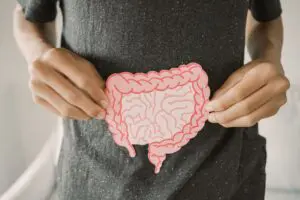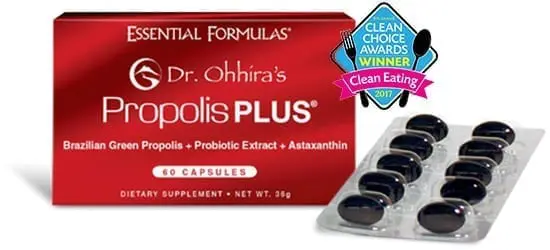By Ross Pelton, RPh, PhD, CCN
We all have days where we lack the motivation to exercise, and now studies give us yet another reason why regular workouts “do a body good.” Your probiotic bacteria have now jumped on the bandwagon as studies prove exercising results in beneficial changes to your microbiome, which include promoting the growth of beneficial bacteria in your color (in turn reducing the number of the bad guys) as well as reducing inflammation. These studies suggest that exercise alone; independent of any dietary changes can impart these improvements
Exercise Improves Gut Microbiome in Mice: Two studies conducted with mice reported that activity resulted in a greater microbiome diversity, improved profile of postbiotic metabolites and reduced levels of inflammation in the colon.i
In the first study, scientists collected fecal material from two groups of mice, one sedentary and one group that exercised regularly. The stool samples from the two groups were transplanted into the colons of germ-free mice. Germ-free mice are born and raised in a sterile environment, and therefore, they have no microbiome or gut bacteria of their own.
The germ-free mice developed the same strains of colon bacteria that they received from each donor group. The germ-free mice that received fecal samples taken from exercising mice developed much higher levels of the probiotic bacteria that produce high levels of the short chain fatty acid butyrate, which are anti-inflammatory and provide energy that stimulates the growth of healthy new epithelial cells in the lining of the GI tract.
In the next stage of the study, the recipient mice were administered chemicals that cause inflammation and causes colitis. The mice that received bacteria from the exercising mice and had far less inflammation, less damage to colonic tissues and much quicker recovery times than the mice who had received bacteria from the sedentary mice.
Exercise Promotes Beneficial Bacteria in Humans: Researchers instructed 18 lean and 14 obese volunteers to engage in six weeks of endurance-based exercise training three days/week for six weeks. The exercise program progressed from 30 to 60 minutes/day and from moderate intensity (60% heart rate capacity) to vigorous intensity (75% heart rate capacity. At the end of six weeks, the participants were then instructed to not exercise for six weeks. The subjects were told not to alter their normal dietary habits.
After the six weeks of exercise, all subjects in both groups increased the number of beneficial colonic probiotic bacteria that make short chain fatty acids (SCFAs), especially butyrate, which suppresses inflammation. The lean subjects experienced the most significant increase in the good bacteria after exercising while the obese subjects had more modest gains in the good bacteria. When the participants were checked after six weeks of not exercising, all had a significant decline in these good colon bacteria.
Although the mechanism is not yet understood, this study reveals the following important points regarding the effect of exercise on the microbiome:
- Activity increases the number of short-chain fatty acid-producing good bacteria in the colon irrespective of dietary changes.
- Exercise resulted in more significant increases in short-chain fatty acid-producing colonic bacteria compared to obese people who exercised
- The exercise-induced improvements achieved in this study did not last when exercise was stopped.
The results from these studies in animals and humans indicate that exercise induces compositional changes in the microbiome, which includes a larger abundance of the strains of probiotic bacteria that are capable of producing beneficial short-chain fatty acids.
The changes in the composition of the microbiome noted above results in the production of postbiotic metabolites, namely short-chain fatty acids, which cause functional changes in the intestinal tract. The SCFA-induced functional changes in the microbiome include reducing inflammation, promoting an optimal level of acidity, directly fighting pathogens and stimulating the growth of healthy new cells in the lining of the GI tract.






